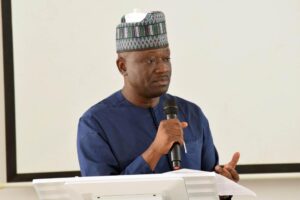Muhyideen Kolawole makes a case for more freedom for the Nigeria press which according to Article 19 continues to be hindered in various ways.
It was a tough period of grievance and protest. Nigerians protested against the daily brutality of the police. It was an abuse of human rights, citizenship and a form of ‘milicrazy’.
All happened amidst Covid-19 pandemic that killed many Nigerians. But as if that was not enough, violence against journalists increased, including social media Bill, broadcasting regulation, physical attacks, arrests, detentions and killings. Worse than 2019 woes.
Between January and October 2020, crimes against 60 journalists were documented by Article 19 in its report titled Nigeria: Free Media under Threat released in November. Agba Jalingo could tell it better or the case of Gidado and Alfred? What about the ones killed in Adamawa and Nasarawa states? The journalists covering protests that were jailed? What story are they going to tell about the freedom of speech as being part of their rights?
What should the law provide than freedom? But when that liberty is being denied, what hope do the citizens have in protecting their lives and property? In such a case, there is a need to see to the Constitution.
Constitution? I know it sounds ridiculous but still, even though it needs thorough scrutiny, that’s what guides our conduct. However, some acts were added, such as the one regulating the media and public information, have come to make the constitution impotent and of recent, many contradictions have been noticed.
In Africa generally, the root of all media problems is in the Constitutions. There is a need to redefine the rules and regulations, clearly define the scope of some terms and ensure the rule of law. In Nigeria, the Cybercrime Act of 2015 needs to be repealed as it clearly contradicts the freedom of expression as stated in Section 39 of the 1999 constitution.
Besides, there is a need for the constitution to state clearly what could be considered a false statement. This has been, over time, used by the government to oppress the media. In many cases, some personality infringement claims by the affluent and political office holders are just investigative reports on their fraudulent acts. Meanwhile, an effort to make them accountable would be regarded as a false statement, slander or hate speech.
Hate speech for instance, which some journalists have been accused of, has no clear definition in the constitution. To what limit would abuse to someone’s personality be labelled a hate speech? Who determines the scope? All these questions are begging for answers.
In amending Nigeria’s media law, there is a need to ensure the freedom of journalists. Liberty that scraps the Cybercrime Act and amends the Constitution to enable journalists to hold the government accountable.






